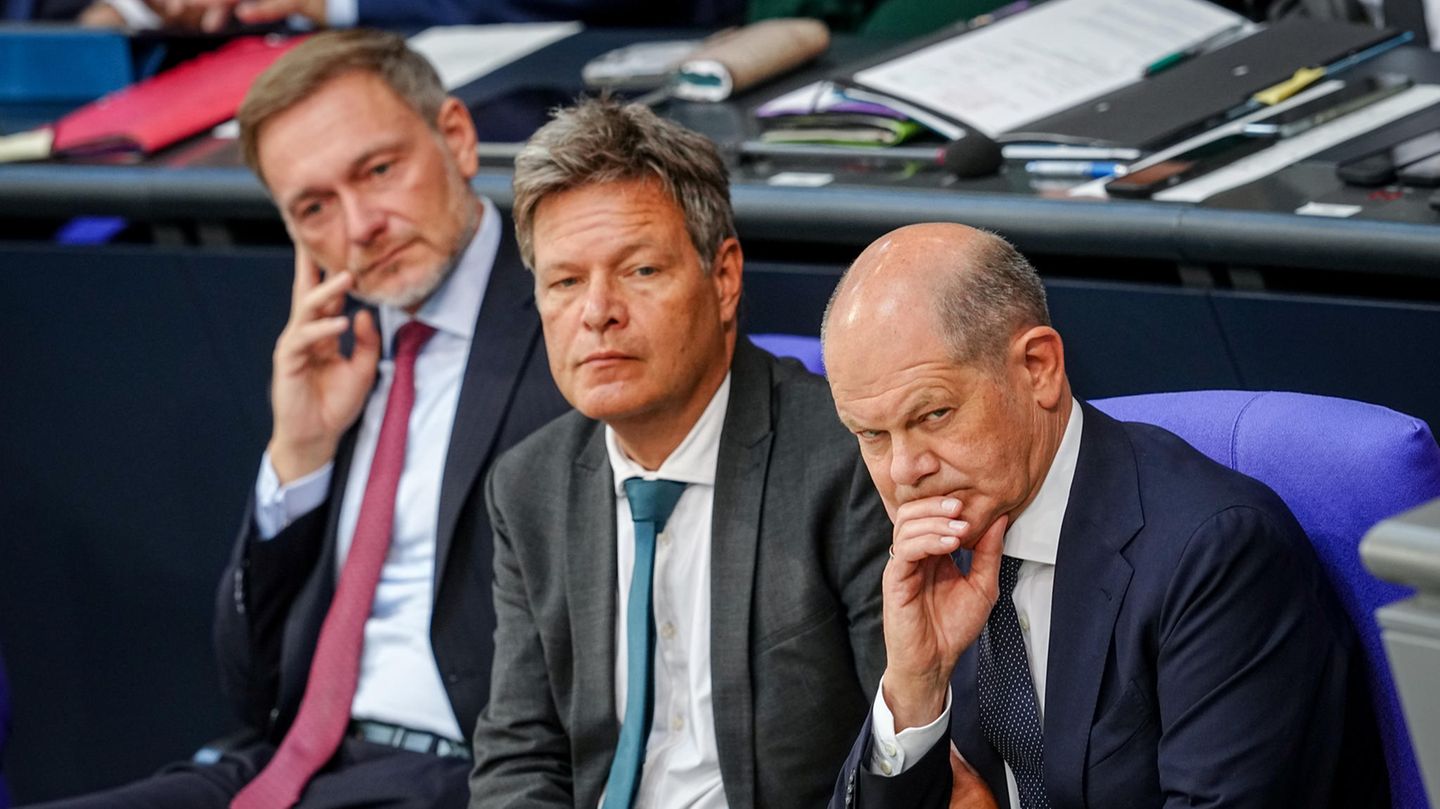Simply explained
It took a long time, but now the federal government has agreed on a new version of the draft budget for 2025. Only the problem of the financial gap remains.
The federal government has had a really hard time with this draft budget: countless hours of negotiations involving the Federal Chancellor, annoyed coalition partners and a package that was reopened because of a threat of a breach of the constitution.
The Federal Cabinet had already approved the draft budget for 2025 in mid-July. There was still a financing gap of 17 billion euros, which was to be reduced to nine billion euros through various measures. But disputes flared up again over these measures.
Now there is a compromise. The original financial gap of 17 billion euros has been reduced, but at 12 billion euros it is still relatively large. The traffic light coalition failed to achieve its goal of shrinking the hole to an acceptable – and usual – nine billion.
What does this mean? The most important questions and answers at a glance:
What is the financial gap all about?
This is the so-called global spending reduction of twelve billion euros – a savings target in the federal government’s budget. This means that this money must be saved in 2025 – but it is not specified how exactly this will happen.
The government says it assumes that the amount will be raised simply because the budgeted expenditure will not be incurred. It also expects that the gap will be further reduced before the budget is passed in the Bundestag at the end of this year – due to an improved economic situation and “needs for updates”. What exactly that might mean remains unclear.
How was the financial gap reduced?
Three measures were agreed: Firstly, Deutsche Bahn’s equity capital is to be increased by 4.5 billion euros. A federal loan to Deutsche Bahn will therefore shrink by exactly the same amount compared to the previous plan, to three billion euros.
On the other hand, a 300 million euro higher payment from the energy company Uniper to the federal government is planned. Uniper is mainly active in the gas business – when gas deliveries from Russia stopped after the Russian attack on Ukraine, the company almost went bankrupt. The federal government stepped in with 13.5 billion euros and took over the company, which is now making a profit again. Repayments to the federal government will begin in 2025 – according to the new plans, 2.9 billion euros will then flow instead of 2.6 billion euros.
In addition, an amount entered in the budget as a precaution will be reduced: This is a precaution in the event that revenue from the so-called EU energy crisis contribution is lower. The contribution – also known as excess profit tax – must be paid by fossil energy companies that particularly benefit from the sharp rise in prices as a result of the Ukraine war. The provision for the loss of this tax revenue will now be reduced by 200 million euros.
Why were renegotiations of the budget necessary at all?
In the first cabinet decision on the budget in mid-July, the financial gap was 17 billion euros. The government announced at the time that the gap would be reduced to around nine billion euros before the draft was submitted to the Bundestag and Bundesrat. This was to be done by converting subsidies to Deutsche Bahn and Autobahn GmbH into loans that the companies would have to repay later. In addition, unused funds from the federal development bank KfW, which were actually intended to finance the gas price cap, were to be repurposed.
However, Federal Finance Minister Christian Lindner (FDP) then raised legal concerns – so new negotiations between Lindner, Chancellor Olaf Scholz (SPD) and Vice Chancellor Robert Habeck (Greens) were necessary. The repurposing of the KfW funds and a loan to Autobahn GmbH are now off the table. The loan to Deutsche Bahn is smaller and, according to the government, will be structured in such a way “that it is not a hidden subsidy”.
What happens next?
The government’s announcement said that the cabinet should decide on the changes to the draft budget by circulation – in writing, without a cabinet meeting. The draft will then be sent to the Bundestag and Bundesrat. The state chamber will formulate a statement on the proposal. The Bundestag will discuss the plans for the first time immediately after the parliamentary summer recess. The first day of the session is September 10. The federal budget is usually passed – after further changes – a few weeks before the end of the year.
Source: Stern
I have been working in the news industry for over 6 years, first as a reporter and now as an editor. I have covered politics extensively, and my work has appeared in major newspapers and online news outlets around the world. In addition to my writing, I also contribute regularly to 24 Hours World.




